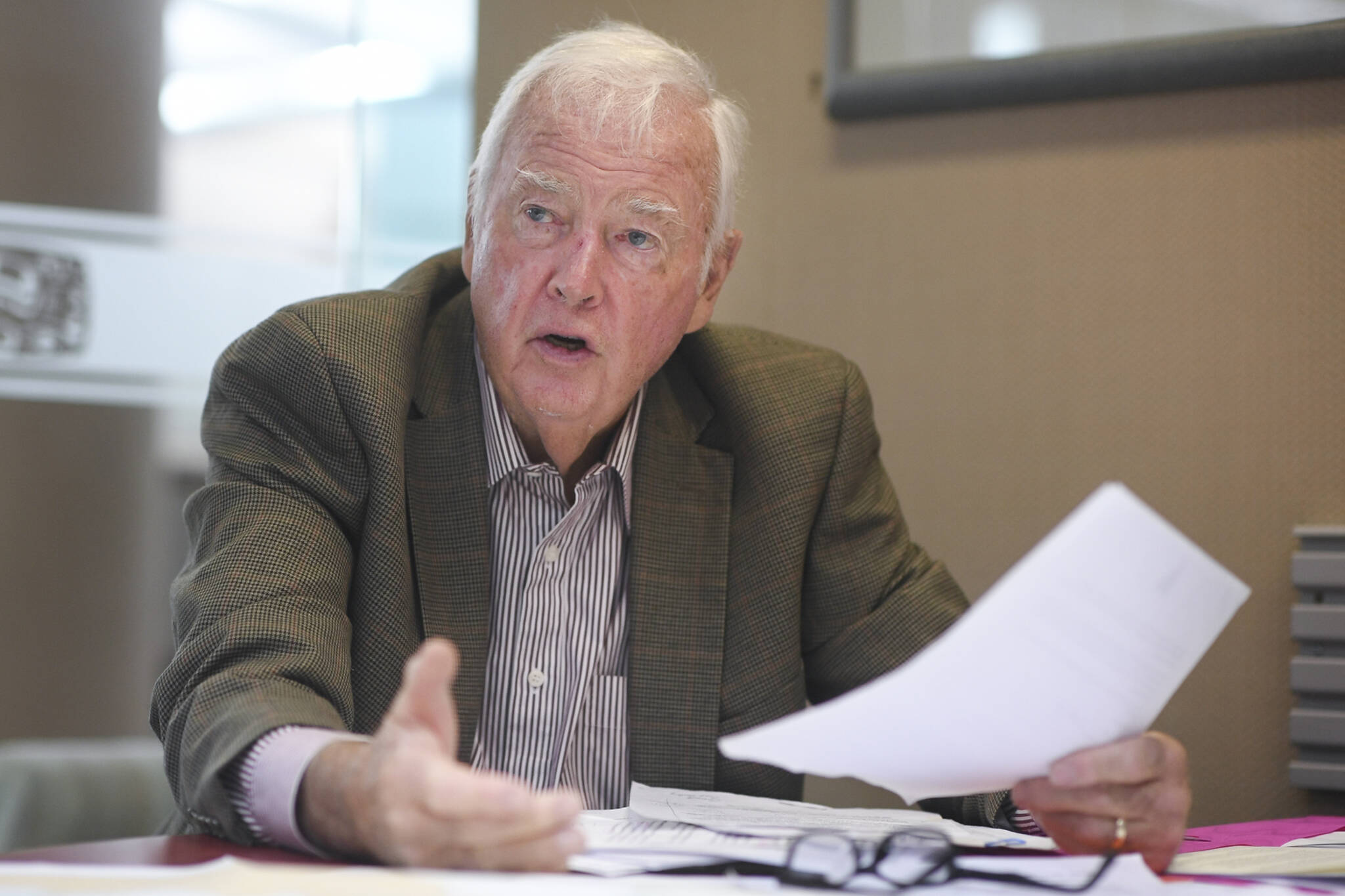By Frank H. Murkowski
The successful conservative management and investment philosophy of the Alaska Permanent Fund must be restored. The importance of the permanent fund’s contribution to the economy of Alaska cannot be overstated. Its current value is more than $83 billion. The earnings from the fund account for about two-thirds of our total state revenue. Without that revenue, we would be close to becoming wards of the federal government, like we were as a territory. Alaskans need to be kept informed of what the trustees are doing with their money.
The public must be given a justification for the abrupt removal of Angela Rodell as executive director of the fund. Under her stewardship it grew almost 50%. Why summarily dismiss a proven and successful manager? Ms. Rodell’s performance in managing the fund has been outstanding. So, it is in the public interest that the Legislature, spearheaded by Sen. Natasha Von Imhof, will take the lead in looking into this unexplained firing and other actions with a hearing scheduled for Jan. 17.
The permanent fund has traditionally been managed by a conservative and safe investment strategy — specifically, a mixture of stocks, bonds, real estate, private equity, hedge funds and the like — while avoiding in-state investments. Until now the fund has refrained from direct Alaskan investments so as to isolate it from the fluctuations of its oil, gas and other resource-based economy and from politics; that appears to be changing. The current trustees have taken it upon themselves to redirect the investment philosophy of the fund and to withhold details regarding this change from the public.
For example, the trustees, led by their chair, have removed $200 million from the fund and placed $100 million each in two firms, McKinley Capital of Anchorage, and Barings, an Outside firm. These businesses should obtain their loans from the Alaska Investment Development and Export Authority (AIDEA) or Alaska banks. This is a significant departure from the conservative investment strategy initiated by the late Elmer Rasmuson, founder and CEO of the National Bank of Alaska and the permanent fund’s first chair.
While $200 million is only a small fraction of the $83 billion in the fund, it signifies a substantial change in strategy. It sets up a glide path for future investments in a totally risky portfolio. Once initiated, it is almost impossible for the trustees to stop asking for authority to increase such borrowings.
Moving $200 million to higher risk development investments means the permanent fund is moving into the investment banking business. Alaska already operates its own development bank, namely AIDEA. Why do we need the state to operate another development bank? Alaskans need an answer to this question.
Historically, AIDEA’s high-risk investment strategy has had many successes, including the Red Dog Mine in Kotzebue, the Vigor Shipyard in Ketchikan, and the Skagway Ore Terminal. It has also had spectacular failures, such as the $79 million loss on the Mustang Project on the North Slope. My administration inherited an AIDEA fish processing plant and cold storage in Anchorage. That loan had to be charged off with the loss of several million dollars; it is now a church. The point again is that there is no need for Alaska to have another state agency move into the banking business. An old banking adage to keep in mind is that all loans are good when you make them.
As mistaken as it is for the Permanent Fund Trust to assume AIDEA’s high-risk investment development lending role, it is equally mistaken for the trustees to keep the $200 million in high-risk investments secret from the public. These are public funds belonging to all Alaskans, and once it is public money it will always be public money, despite any interpretations of state law.
I have had a long history in banking in Alaska. As governor, I had the pleasure of appointing several well-qualified trustees. At the time, I looked for experience in business and finance and a track record of success as qualifications for appointment. I also valued their independence from the many pressures of special interest groups and lobbyists. Several of my appointees have served as chair of the permanent fund. Their expertise in finance and investing prior to their appointments and commitment to a conservative investment strategy helped the permanent fund become what it is today.
In short, the Legislature and the public need to learn why the permanent fund has changed its proven conservative management and investment philosophy. Unless these changes can be explained and justified and limits placed on it, the Legislature should require the fund to return to its successful conservative investment strategy.
We must demand transparency. We must demand answers and we must demand that the best interest of the permanent fund comes before personal interests and political gains.
I look forward to having these questions and others further examined at the Legislative Budget and Audit Committee’s January 17 hearing.
Frank H. Murkowski is a former Alaska senator and governor.

